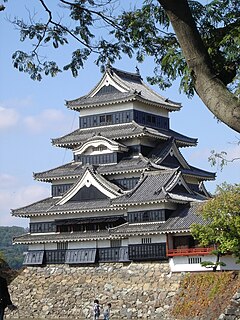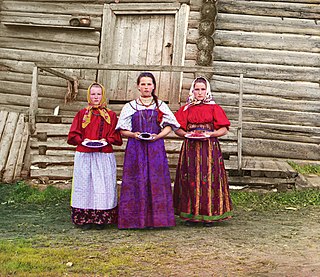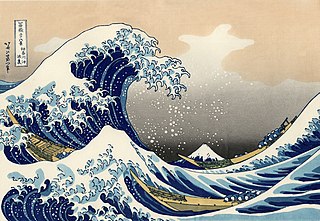Chinese surnames are used by Han Chinese and Sinicized ethnic groups in Mainland China, Hong Kong, Macau, Malaysia, Brunei, Taiwan, Korea, Singapore, Indonesia, Philippines, Vietnam and among overseas Chinese communities. In ancient times two types of surnames existed, namely xing or clan names, and shi or lineage names.
Kotobagari refers to the reluctance to use words that are considered politically incorrect in the Japanese language. For instance words such as rai, mekura, tsunbo, oshi, kichigai, tosatsujō, and hakuchi are currently not used by the majority of Japanese publishing houses; the publishers often refuse to publish writing which includes these words.
Li is the pinyin and Wade–Giles romanization of several distinct Chinese surnames that are written with different characters in Chinese. Li 李 is by far the most common among them, shared by 93 million people in China, and more than 100 million worldwide. It is the second most common Chinese surname behind Wang and the most common surname in Canada.
Yuan Yida is a researcher from the Institute of Genetic and Developmental Biology at the Chinese Academy of Sciences. He is a leading researcher on Chinese surnames in mainland China, and has been working on statistical studies of surname distribution in the People's Republic of China over the past two decades. He led the research on an updated, 2006 version of the Hundred Family Surnames, a text of popular surnames originally published in the Song Dynasty, encompassing 4100 surnames from 296 million individuals in 1110 counties.
The Kudara no Konikishi was a Japanese clan whose founder Zenkō was a son of King Uija, the last king of Baekje in southwestern Korea.

Zhuang is the pinyin romanization of the Chinese surname written 庄 in simplified character and 莊 in traditional character. It is spoken in the first tone: Zhuāng.
The Hundred Family Surnames is a classic Chinese text composed of common Chinese surnames. The book was composed in the early Song dynasty. It originally contained 411 surnames, and was later expanded to 504. Of these, 444 are single-character surnames, and 60 are double-character surnames. About 800 names have been derived from the original ones.

Matsumoto Domain was a feudal domain under the Tokugawa shogunate of Edo period Japan. It is located in Shinano Province, Honshū. The domain was centered at Matsumoto Castle, located in what is the city of Matsumoto in Nagano Prefecture.
Ou is the pinyin romanization of the Chinese surnames 区/區 and 欧/歐, which share a common origin with the compound surname Ouyang (歐陽), from the ruling family of the State of Yue during the Spring and Autumn period. They are commonly romanized as Au or Ao in Cantonese.

Lü is the pinyin and Wade–Giles romanisation of the Chinese surname written 吕 in simplified character and 呂 in traditional character. It is the 47th most common surname in China, shared by 5.6 million people, or 0.47% of the Chinese population as of 2002. It is especially common in Shandong and Henan provinces.
Baixing (Chinese: 百姓; pinyin: bǎixìng; literally: 'hundred surnames' or lao baixing is a term in Chinese meaning "the people", or "commoners". The word lao is often added before "baixing" to give the term a more affectionate tone.

Mao is the romanization of several Chinese family names, including common names 毛 (Máo), 茅 (Māo) and some rare names 茆 (Máo), 卯 (Máo), 貌 (Mào) etc.

Eastern District Council is the district council for the Eastern District in Hong Kong. It is one of 18 district council. Eastern District currently consists of 35 members, of which the district is divided into 35 constituencies, electing a total of 35 members. The latest election was held on 22 November 2015.

Southern District Council is the district council for the Southern District in Hong Kong. It is one of 18 district council. Southern District currently consists of 17 members, of which the district is divided into 17 constituencies, electing a total of 17 members. The latest election was held on 22 November 2015.

Lí is a Chinese surname. It is most common in Central and South China where it is transliterated as Lai or Lye, and is one of the four most common surnames among ethnic Vietnamese people, which in the Vietnamese language is Lê. It is listed 262nd in the Song Dynasty classic Hundred Family Surnames.

Lǐ (理) is a Chinese surname. In Mandarin it is pronounced with the dipped third tone of the four tones.

Shanzao Town is an urban town in Xiangxiang City, Xiangtan City, Hunan Province, People's Republic of China.

Lì is the pinyin romanization of the Chinese surname written 栗 in Chinese character. It is also spelled Leut according to the Cantonese pronunciation. Relatively uncommon, it is not listed in the Song Dynasty classic Hundred Family Surnames.

Li is the second most common surname in China, behind only Wang. It is one of the most common surnames in the world, shared by 92.76 million people in China, and more than 100 million worldwide. It is the fourth name listed in the Song dynasty classic text Hundred Family Surnames.
The Yuanhe Xingzuan is an imperial Tang dynasty register of the genealogies of China's prominent families. It was compiled by Lin Bao (林寶), on the order of Emperor Xianzong, whose era name was Yuanhe. The book was completed in 812 and records 1,232 surnames.













